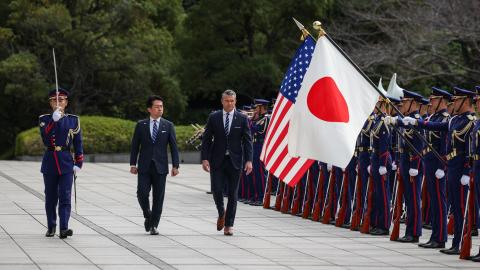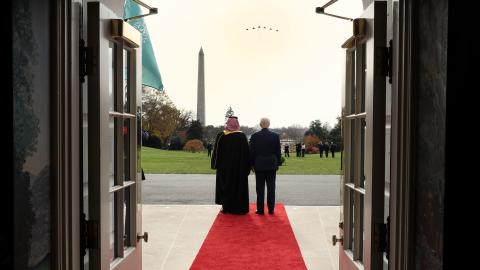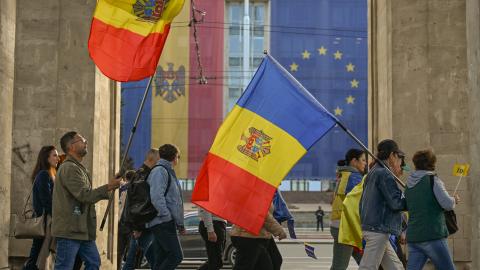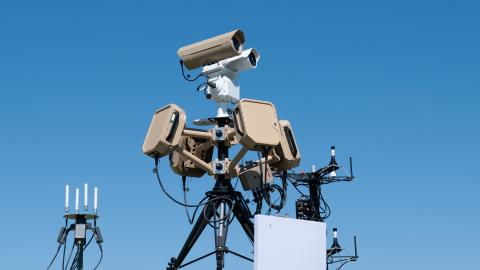The Transitional Administrative Law signed in Iraq yesterday contains a powerful Bill of Rights and sets Iraq firmly on the path toward democracy, said Freedom Houses Center for Religious Freedom today.
Significantly, Article 13F, which guarantees the keystone freedom of religion, states: Each Iraqi has the right to freedom of thought, conscience, and religious belief and practice. Coercion in such matters shall be prohibited.""
The religious freedom guarantees are nothing short of revolutionary in the context of the Middle East,"" said Center Director Nina Shea.
In granting rights to the individual and in guaranteeing freedom of belief and freedom of religious practice, this provision protects women from having their legal rights determined by religious clergy; protects dissidents and reformers from being prosecuted for blasphemy and apostasy crimes; grants non-Muslim minorities a full religious life beyond worship services within church confines; and grants all Muslim sects legitimacy,"" Shea added. Iraq will be the only Arab nation with these critical rights constitutionally enshrined.""
Some ambiguities concerning the role of Islam are raised in Article 7, which declares Islam as the state religion and a source"" of legislation. It also states that no law can contradict the universally agreed tenets of Islam."" The vague wording of this provision raises the prospect that unelected clerics could hold veto power over the legislature in determining what is Islamically correct. However, Article 7 also bars laws that contradict the principles of democracy"" and the Bill of Rights, two conditions that would serve as checks on Islamic sharia law. Furthermore, in its overall context, no fair reading of the interim Law, which contains multiple provisions that reinforce the Bill of Rights, could find a basis for an Islamist state.
The Bill of Rights also protects freedom of expression, association, assembly, movement, privacy, womens rights, and rights to own property, fair trial and basic due process, including freedom from torture.
It grants equal rights and equality before the law without regard to gender, sect, opinion, belief, nationality, religion, or origin."" (Article 12)
While press freedom is not explicitly guaranteed, it should be protected under the provision protecting freedom of expression in Article 13 and the provision that generally incorporates all rights contained in Iraqs international treaty obligations under Article 23.
While clarifications of rights can and should be made, this document is groundbreaking for both Iraq and for the entire Middle East,"" Shea commented.
Other provisions in the new Law that reinforce human rights include:
- No amendment to abridge the Bill of Rights is permitted (Article 3);
- Any legal provision that conflicts with the interim constitution is null and void (Article 3);
- A federal system is not to be based on confession"" (Article 4);
- The Bill of Rights is binding on local authorities (Article 10);
- An Iraqi whose citizenship was withdrawn for political, religious, racial or sectarian reasons has the right to reclaim Iraqi citizenship"" (Article 11b);
- No one may be detained for reason of political or religious beliefs."" (Article 15c)
- No Iraqi may be discriminated against in elections on the basis of gender, religion, sect, race, belief, ethnic origin, language, wealth, or literacy."" (Article 20b)
- No authority may interfere with the right of Iraqi people to develop the institutions of civil society (Article 21);
- Basic international human rights, including those of the International Covenant on Civil and Political Rights, are incorporated (Article 23);
- The electoral law shall aim to achieve the goal of having women constitute no less than one-quarter of the members of the National Assembly and of having fair representation for all communities in Iraq, including the Turcomans, ChaldoAssyrians, and others"" (Article 30C);
- The government is to establish a National Commission on Human Rights and Office of Ombudsman under UN guidelines (Article 50);
- The federal system is to encourage the exercise of local authority (Article 52).
The mechanism requiring wide agreement among Iraqs provinces for any constitutional amendment in effect would allow a Kurdish veto to the permanent constitution and could serve as a check against an Islamist state in the future. Kurdish constitutional negotiator, Rowsch Shaways, told the Washington Post that this mechanism will be in the benefit of democracy. We dont know how the election will be. Will it be a majority who can write down a constitution in a religious direction? It is very sensible to have a mechanism that will prevent that."" (March 7, 2004)
This is a forward looking democratic constitution that properly distinguishes religion from the state and persistently protects the individual and emphasizes equal rights for all Iraqi citizens,"" Ms. Shea said. The fact that Shiite religious authorities have not been allowed to veto the interim law is further evidence of this. Coalition Administrator Paul Bremer and the Iraqi Governing Council have produced an historic achievement giving a strong foundation for peace and freedom in Iraq. The challenge now is to transform the legal guarantees into concrete realities in peoples lives.""
















